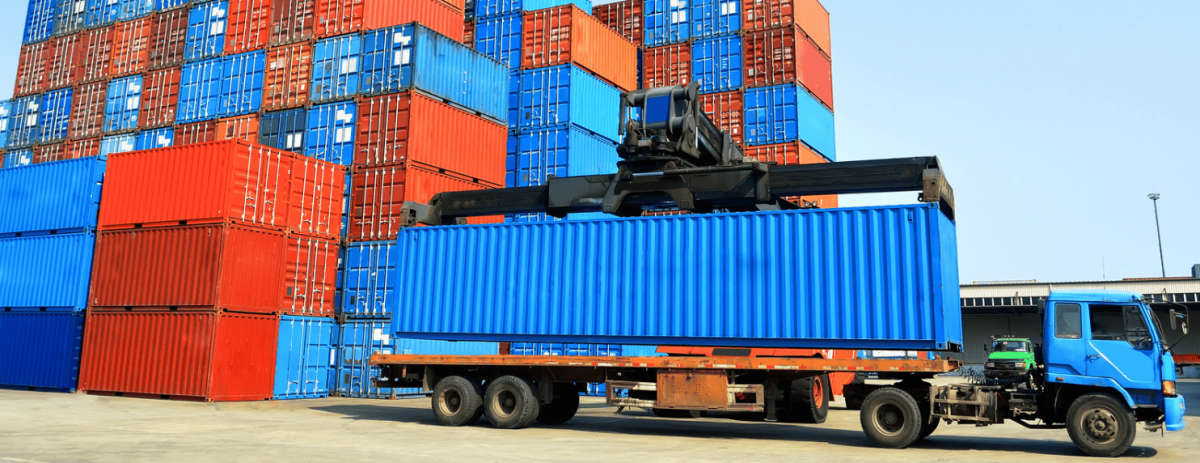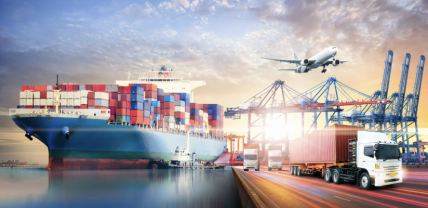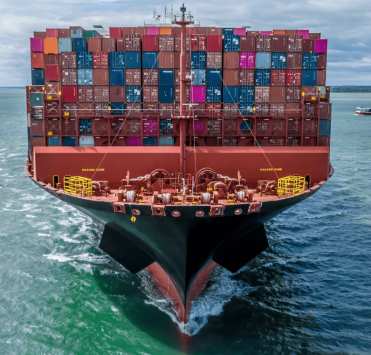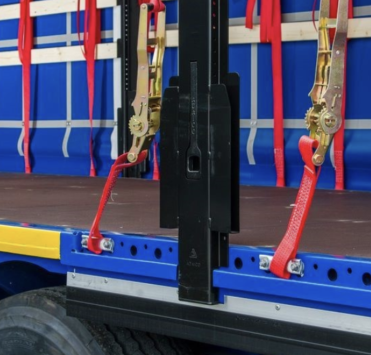Reloading of cargo in ports - optimizing logistics without unnecessary risks

In the context of international trade and logistics, the term “transshipment of cargo in ports” has long become an integral part of the transportation process. Today, when speed, flexibility and economy at every stage of the logistics chain come to the forefront, competent organization of repacking and professional forwarding in the port become key factors of delivery success.
What is repacking?
Reloading is the process of transferring goods from one container to another (into a tilt truck) for the purpose of further transportation. This is a logistic operation, which is especially demanded in international trade, where cargoes pass through several stages of transportation and change of means of transport: sea, road, rail transport.
Most often repacking is carried out in ports, temporary storage warehouses, terminals or logistics hubs. In maritime transportation, repacking becomes necessary to adapt the cargo to the requirements of the domestic market, to comply with the rules of overland transportation or when switching from the international transport system to regional delivery schemes.
In logistics, repacking is used for a variety of tasks:
- Changing packaging to meet the requirements of another mode of transportation (e.g., reloading from a sea container to a tilt truck);
- reducing or dividing the volume of a shipment for further delivery;
- changing the labeling or packaging to meet the standards of the destination country;
- optimizing tare weight or volume to reduce transportation costs;
- replacement of damaged packaging;
- control of quality and compliance of cargo with documents at the stage of reloading.
It is important to understand that reloading of cargo is not just mechanical reloading, but a responsible procedure that requires compliance with safety standards, sanitary regulations (in the case of food and pharmaceutical products), as well as a professional approach to packaging and labeling.
Reloading is especially relevant in intermodal and multimodal transportation, when cargo is transported by several different operators and different transport is used within one route. In such cases, it is impossible to ensure the integrity of the logistics chain and accurate delivery to the recipient without competent repacking.
.png)
.png)
.png)
Types of goods that are most often repacked
Not all shipments require repacking, but there are a number of commodity groups for which this operation is a standard part of logistics:
- Industrial goods: machine tools, equipment, construction materials, which often arrive in large-tonnage containers and require separation before delivery.
- Agricultural products: grains, oilseeds, fodder, fruits - often repackaged from large packages into bags, big bags or vice versa.
- Chemical products: mineral fertilizers, polymers, liquids in drums or IBC containers requiring additional packaging.
- Electronics and household appliances: repacking may be necessary for consolidation of consolidated shipments.
- Pharmaceuticals and cosmetics: requires specific conditions for repacking.
Repacking is also often used when importing goods to countries with special customs regulations, when it is necessary to change the labeling, escort or packaging.
Advantages of repacking in ports
A port is the ideal place to perform repacking. And here's why:
- Geographical convenience: ports are logistic hubs where sea, road and rail routes converge.
- Time saving: repacking at the port allows you to redirect the cargo immediately after unloading from the ship into the right container (container, body) and continue transportation without unnecessary movements.
- Cost minimization: no need to pay for storage or additional transportation to the warehouse.
- Logistical flexibility: the ability to adapt packaging to the requirements of a specific customer or mode of transportation.
- Quality control and documentation: at the port it is possible to carry out additional checks on the shipment, replace damaged packaging or update labeling.
Port repacking is particularly relevant for consolidated cargo, goods with a limited shelf life, as well as in cases where rapid consolidation or deconsolidation is required.
How repacking is performed during sea transportation
The process of repacking for sea transportation includes several consecutive stages:
- Unloading of the sea container: carried out from the ship to the port terminal.
- Inspection of the cargo: visual inspection for damage, check of accompanying documents.
- Extraction of cargo: with the help of loading and unloading equipment (forklifts, cranes, manipulators).
- Packing in new containers: depending on the destination, the cargo can be packed in bags, boxes, barrels, euro pallets, IBC containers or even new sea containers.
- Labeling and preparation for further transportation: mandatory labeling with data on the recipient, cargo, storage conditions.
- Loading into transport and preparation of transit documents: after repacking, the shipment can be immediately sent to its destination - by road, rail or other means of transportation.
It is important that repacking of cargo in ports is performed by qualified personnel in compliance with all safety standards and the specifics of handling a particular type of product.
What is port forwarding and why is it necessary?
Port forwarding is a set of services that coordinate all operations related to the receipt, handling and shipment of cargo. A port forwarder is the link between the shipping company, the port, customs and the consignee.
Forwarding includes:
- execution of port documentation;
- organization of repacking and reloading;
- coordination of loading and unloading operations;
- customs support;
- control of terms and routes;
- ensuring cargo safety.
Without professional forwarding it is impossible to guarantee the efficiency and accuracy of the logistics chain, especially in multimodal transportation involving sea transport.
Where to order repacking of cargoes: main ports
Save Pro Solutions company provides repacking services in strategically important European ports, where key logistics flows are concentrated. We cooperate with reliable warehouses and terminals, which allows us to perform repacking of various types of products promptly and safely. Below are the main ports where we offer repacking services:
- Hamburg (Germany) - the largest deep-water port suitable for import and transit of cargo from Asia, North and South America. It is characterized by high throughput capacity and developed infrastructure.
- Gdansk (Poland) - a modern port on the Baltic Sea, convenient for logistics operations with cargoes bound for Ukraine and Central and Western Europe.
- Gdynia (Poland) - a complementary port of Gdansk with a developed warehouse network and opportunities for rapid repacking, especially relevant in the organization of multimodal transportations.
- Constanta (Romania) - the largest port on the Black Sea, strategically important for shipments to Ukraine and Moldova. It is often used for cargoes traveling across the Danube and inland waterways.
In all these ports we organize a full cycle of operations: unloading, repacking, documentation and further shipment of cargo. Thanks to our experience and reliable partner network, you will receive quality and timely fulfillment of all repacking procedures.
Conclusion
Transshipment of cargo in ports and professional port forwarding are not just logistics operations, but key links in reliable and cost-effective international delivery. Properly organized processes can reduce delivery time, lower costs and ensure the complete safety of your cargo. Entrust repacking and forwarding to professionals and your logistics will work smoothly.









